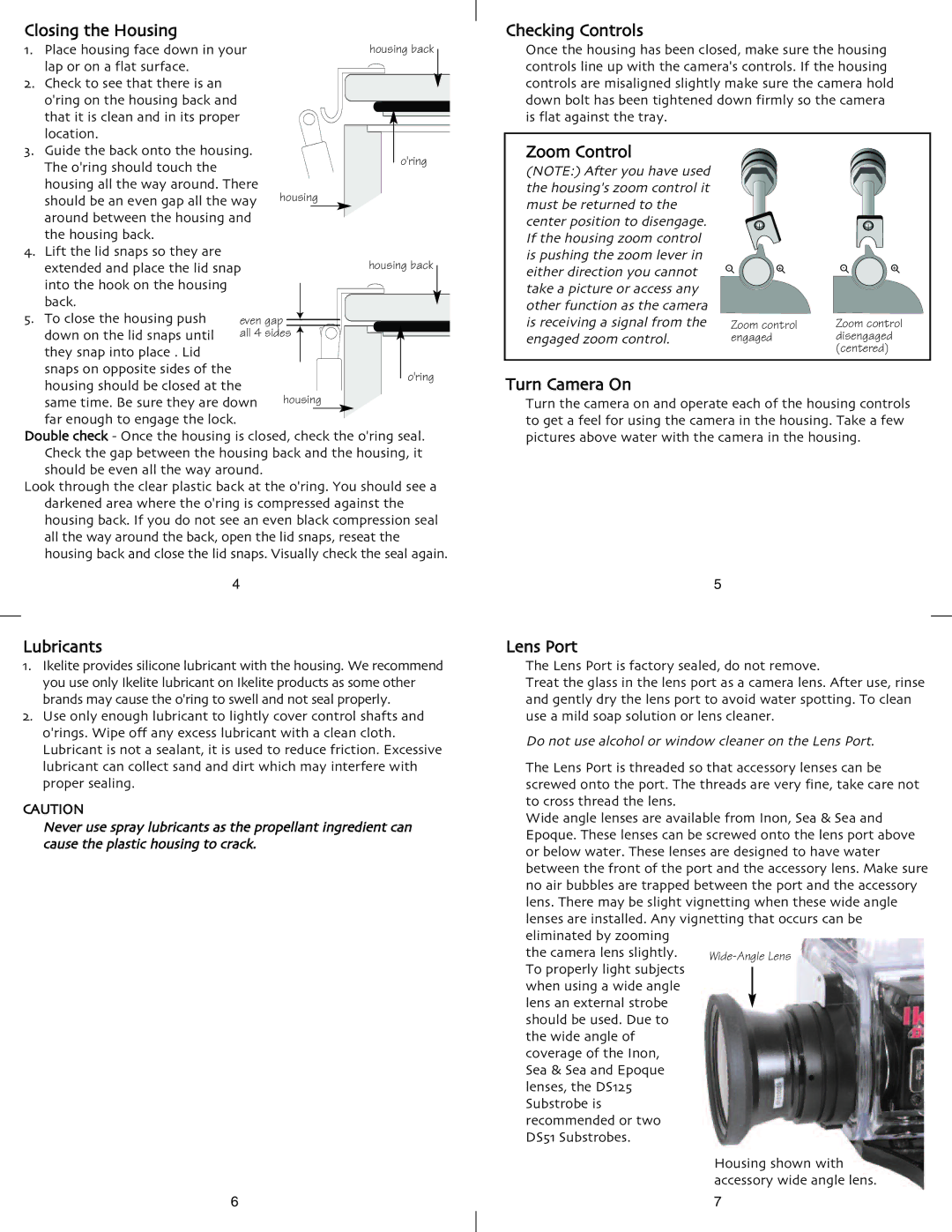A630, A640 specifications
The Ikelite A640 and A630 underwater housings are specifically designed to enhance and protect Canon's popular PowerShot A-series cameras. These housings are built to withstand the unique challenges posed by underwater environments, providing photographers with a robust solution for capturing stunning images beneath the waves.One of the standout features of the Ikelite A640 and A630 housings is their depth rating. Both models boast a remarkable depth rating of up to 200 feet (60 meters), making them suitable for a wide variety of underwater activities, from snorkeling to deep-sea diving. The housings are crafted from durable polycarbonate material, ensuring their longevity while also allowing divers to clearly see the camera's controls.
The design of the Ikelite A640 and A630 housings incorporates large, easy-to-use controls. These controls are specifically designed to mimic the layout of the camera’s buttons, enabling users to effortlessly operate the camera while wearing diving gloves. This ergonomic design ensures that photographers can concentrate on capturing images rather than fumbling with complex settings.
An appealing aspect of the Ikelite A640 and A630 is the inclusion of an integrated TTL (Through The Lens) exposure system. This technology allows for automatic flash exposure, ensuring that users can achieve balanced lighting in their images without the need for complicated manual adjustments. This feature is particularly advantageous in underwater photography, where lighting conditions can be unpredictable.
Furthermore, the housings are equipped with a built-in flash diffuser that softens the flash output, helping to reduce backscatter, which can often mar underwater photographs. The capacity to attach additional lighting systems is also a remarkable characteristic. Both housings feature an accessory port for attaching external strobes, allowing for greater flexibility and creativity in lighting setups.
The Ikelite A640 and A630 provide a clear view of the camera’s LCD screen through a large viewing window, enabling users to frame their shots accurately. This is particularly crucial in underwater photography, where visibility can be compromised by water quality and lighting conditions.
In summary, the Ikelite A640 and A630 underwater housings represent a fusion of durability, user-friendliness, and advanced technology, making them ideal companions for Canon PowerShot A-series camera users who wish to explore and capture the beauty of underwater worlds. Their reliable performance and thoughtful design features make them a must-have for enthusiasts and professionals alike.

